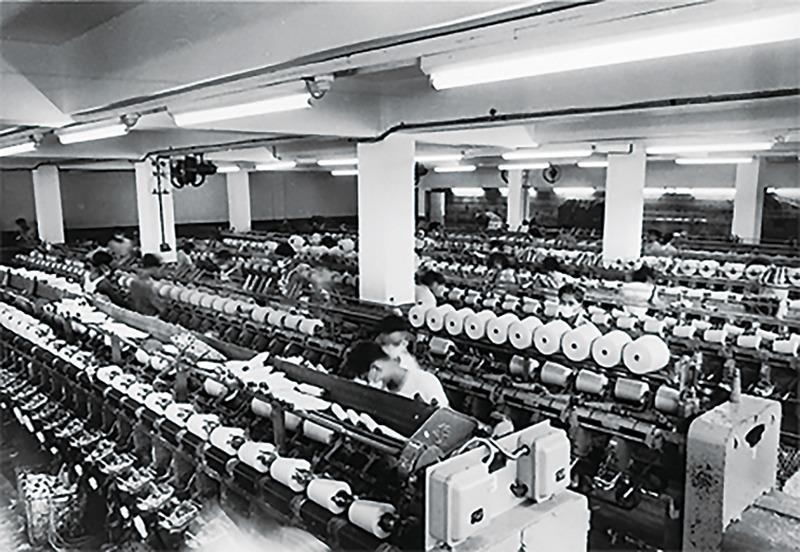 Millers work in Mill factory No 5 that was completed in 1970. (PHOTO PROVIDED TO CHINA DAILY)
Millers work in Mill factory No 5 that was completed in 1970. (PHOTO PROVIDED TO CHINA DAILY)
The Mills — a HK$700 million (US$90.32 million) startup of international conglomerate Nan Fung Group to help bring Hong Kong’s creative and fashion industry back to life — is here to stay.
Nan Fung, founded by Hong Kong textile tycoon Chen Din-hwa in 1954, is leveraging its long entrenched strength in the clothing business, combining technology and fashion, to incubate the city’s creative talents.
Group Chairman and Chief Executive Officer Antony Leung Kam-chung described the mission of revitalizing The Mills as the emphasis on Hong Kong’s historical heritage and visualization of the city’s future development.
It may be difficult for Hong Kong to develop a thriving textile industry as before, but the enlightenment and spirit it brings to the city can inspire the new with the old, and is worth inheriting, says Leung, who returned to the private business sector after having served for slightly more than two years as the special administrative region’s financial secretary from 2001 to 2003.
These include attaching importance to science and technology development, the cultivation of an international perspective, and a spirit of continuous exploration, Leung said.
In an interview with China Daily, Leung said Hong Kong’s future development should value the creative sector, and other innovation-driven industries, together with the entrepreneurship of the younger generation.
These industries help create more opportunities for youths, and can attract more global talents to settle down in Hong Kong, he said.
Hong Kong has always hoped to attract high-end innovation and technology talents. But, the reality is that the momentum of science and technology development on the Chinese mainland is a lot faster than Hong Kong’s, with a larger market, which makes the mainland a more attractive destination, Leung noted.
Therefore, Hong Kong should probably try to attract more talents in the creative industry, he said. As a world shipping, financial services and commercial activities hub, Hong Kong needs a lot of supporting services, and the creative sector is one of them, he stressed.
Moreover, Leung thinks the government should proactively introduce more policies to attract professionals in scientific research to take up Hong Kong’s role in the development of the Guangdong-Hong Kong-Macao Greater Bay Area.
In 2018, Nan Fung Group fully funded the establishment of the Hong Kong Life Sciences Society, chaired by the group’s managing director Vincent Cheung Sai-sing.
The board governors of the HKLSS include Vice-President of the Hong Kong University of Science and Technology Nancy Ip Yuk-yu; Director of the Li Ka Shing Institute of Health Sciences of the Chinese University of Hong Kong Dennis Lo Yuk-ming; and founder of Morningside Venture Capital Gerald Chan Lok-chung.
HKLSS aims to help young local talents broaden their horizons and strengthen exchanges with the life science and technology field on the mainland, said Leung.
The organization has worked closely with the business community to launch a series of activities, including the Shanghai life science and technology summer internship program, which provides internships and learning opportunities for senior undergraduates and graduate students at Hong Kong universities.
Last summer, 30 students were assigned internships in research and development institutions, large pharmaceutical companies, startups and venture capital institutions in Shanghai.
The HKLSS also launched a mentorship program in which business leaders act as students’ mentors to answer questions about their career planning and other aspects.


